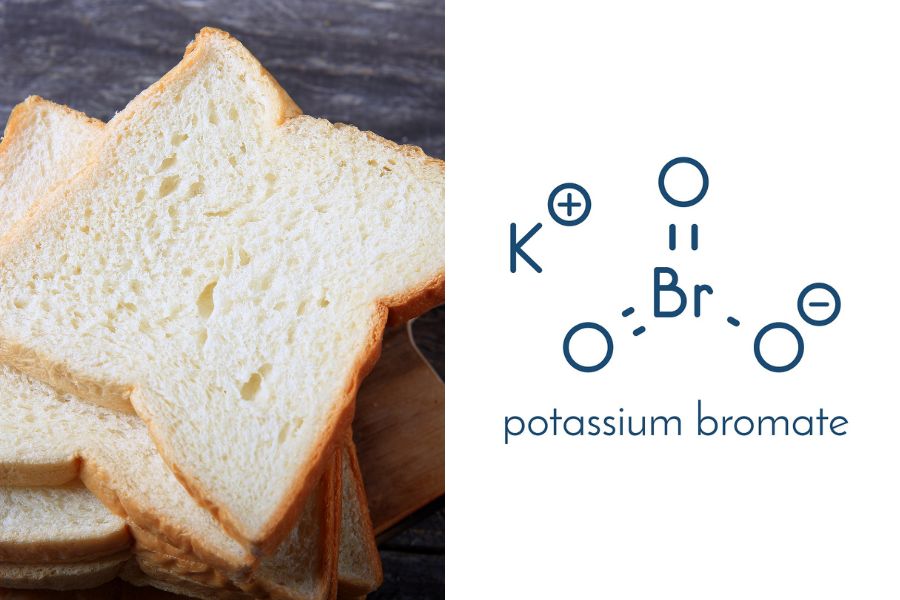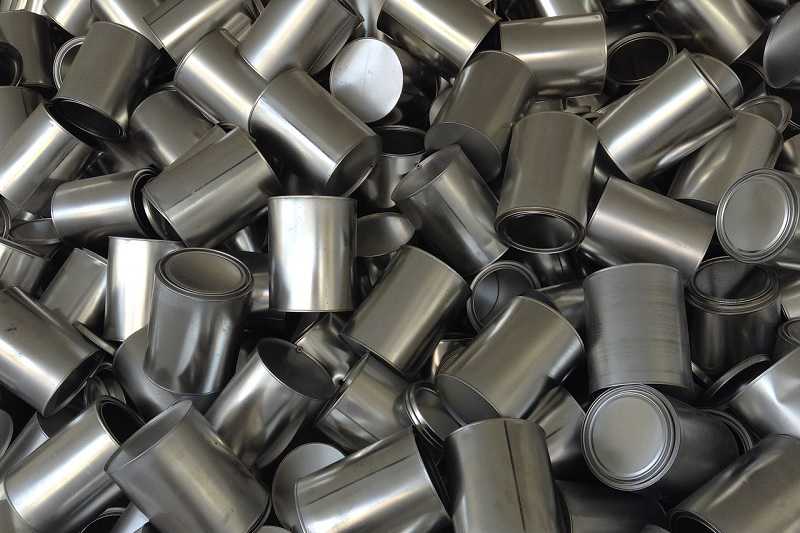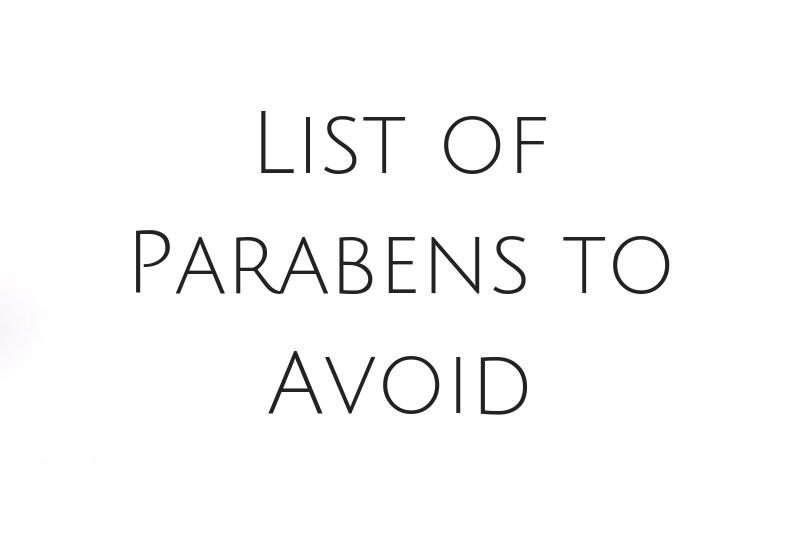Have you heard of the compound “potassium bromate” before? You might think this sounds like a nasty chemical, and you’d not be wrong. In fact, you might even remember it from your old school chemistry lessons! But what if I told you this chemical is a common food additive in bread?
That’s right, potassium bromate (E924) has been added to flour used for baking since 1914. The additive helps to strengthen the dough, makes it rise higher, and turns bread white. These are three very desirable qualities for bread bakers! Yet, since this chemical has been approved for use in food, new findings about its associated health risks have come to light.
Due to these health risks, many countries have now banned the use of this additive, but what about the United Kingdom? Does UK bread contain potassium bromate? Or can you cat your sandwiches and slices of toast in confidence?
Does Bread Contain Potassium Bromate in the UK?
Bread in the UK does not contain potassium bromate. This includes bread manufactured inside the country and imported from overseas to the UK.
Therefore, you can pick up any loaf from British supermarket shelves, from Hovis to Warburtons or supermarket own brands, knowing you’re not accidentally consuming this nasty chemical.
Is Potassium Bromate Banned in the UK?
You’ll be pleased to hear that not only does UK bread not contain potassium bromate, no consumable goods do! The chemical is outrightly banned for use in food in Britain.
It is not on the list of approved food additives provided by the UK Food Standards Agency (FSA) and has been prohibited in the food industry since new legislation was passed in 1990.
The ban on using potassium bromate as a food additive is based on its significant associated health risks. It is classified as a Class 2B carcinogenic substance, meaning it is possibly carcinogenic (cancer-causing) to humans. Any substances that cause health risks are deemed unsafe for consumption and banned by the FSA.
What Does Potassium Bromate Do in the Body?
There has been much research into the effects of potassium bromate in the body. The main issue in multiple scientific animal studies is that the chemical is carcinogenic and could have potentially similar results in humans. This is thought to be due to the chemical’s ability to generate free radicals.
One study from 1986 found that oral administration of potassium bromate in rats significantly increased the incidence rate of renal tumours, one of the first to identify E924 as carcinogenic.
A later study found that ingesting the compound significantly increased cancer in lab animals’ thyroid, kidneys, and other organs.
What Other Countries Have Banned Potassium Bromate in Food?
The United Kingdom is not alone in its E924 ban; many other countries have prohibited the use of the chemical because of its tremendous risks to human health.
You won’t find the food additive in any bread from countries within the European Union, where potassium bromate is outlawed. It is also banned in Canada, China, Brazil, India, and many other places across the globe.
On the other hand, potassium bromate is legal and continues to be used in the United States. It is found in loaves of bread, pizza dough, baked buns, and many other flour-containing baked goods in the US.
The only minor restriction is in California, where potassium bromate is allowed, yet it must legally be indicated on product packaging.
Why Is Potassium Bromate Legal in the US?
If potassium bromate is prohibited in the UK and further afield, why is it still found in bread in the United States? This is a great question! No regulatory efforts have yet been made to address the health risks of the chemical, and the FDA hasn’t reviewed the food additive since 1973.
Many food manufacturers argue that potassium bromate is converted to potassium bromide during cooking. This latter chemical is not carcinogenic, so safe for consumption.
However, one study assessing the potassium bromate content of bread found detectable levels in six unpackaged loaves and seven out of 22 packaged loaves. Baking might not make bread as safe as the FDA assumes.
Thankfully, this is an issue you don’t need to deal with in the United Kingdom. However, you should be aware of the legalities of the food additive in the US nonetheless. If you go to the United States, consider skipping bread entirely to avoid the potential risks!

Hannah is a freelance content writer passionate about natural health, mindfulness, and the environment. She shares her enthusiasm for a conscious lifestyle on Naturaler, inspiring others to take the steps towards a more natural and fulfilling life



